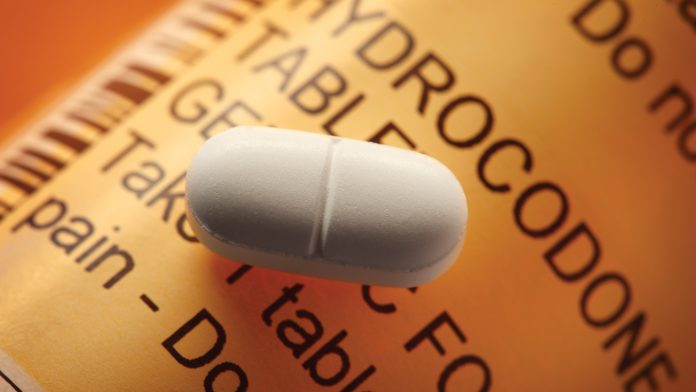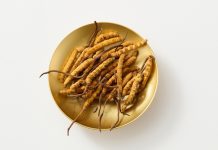
Dr Frank D’Ambrosio speaks to Health Europa to explain how he came to be not only an advocate, but an advisor on cannabis policy reform.
For 20 years Dr Frank D’Ambrosio was an orthopaedic surgeon – so why in recent years has he completely changed course and established a clinic in California to prescribe cannabis as a medicine? Dr D’Ambrosio is now a passionate campaigner and advocate fighting for cannabis policy reform, and cannabis to be recognised for its medicinal benefits and has travelled extensively to spread the word, advising governments and even the World Health Organization’s Expert Committee on Drug Dependence.
Health Europa spoke to D’Ambrosio about his experience as being one of the first to recognise the medicinal benefits of cannabis and specifically it’s potential as a substance which could replace opioid use for chronic pain which so often leads to dependence. Here he tells us his inspiring story, explaining how he came to discover cannabis’ potential, tackling the lingering stigma, and why he often advises incorporating it into cooking.
How and when were you first alerted to the benefits of Cannabis as a medicine?
I wasn’t taught anything about cannabis or the endocannabinoid system in medical school and so this was something I came to by myself in the 1990s after I had graduated. I always knew that people were using cannabis for stress relief and for sleep issues, but I didn’t really start seeing it as a medicine until probably about five or six years ago, when as a spine surgeon, I had an office full of patients who were addicted to opioids. I was looking for any way to try and get people off the opioids but there really weren’t a lot of options.
During my research, I started reading more and more about cannabis as a safe alternative to opioids and so I experimented with some of my patients. I was able to see unbelievable results, just unbelievable and so the rest was history. This was before anybody even realised that we really had an opioid epidemic in the United States and nobody was talking about it. It was just the easy and accepted thing to do when a patient comes into the emergency room with a fracture – prescribe them with the appropriate opioid and wait for them to heal. I didn’t realise that it only takes one prescription for a 10-day supply of opioids – which was the standard response which we adhered to if someone came to the emergency room with a fracture or painful kind of injury. Just a 10-day prescription is all it takes for a person to develop and opioid issue.
From there it became a question of transforming my practice from one performing orthopaedic surgery into one of treating people with opioid issues. From there it became heroin and then it was alcohol; it became just a slew of medical ailments and a slew of disease processes which we began to intervene in. The more people I saw and the more I did, the more I learned about how important cannabis can be for an enormous amount of problems which people suffer with acutely and chronically. That’s how it really started, and it has simply grown and got bigger.
We are seeing here in Europe that it is patients themselves who are bringing this information
to their doctors and therefore driving change. Does this correlate with your experience as a Medical Doctor?
I would like to think I was proactive in what did. Patients did not seek me out with questions about cannabis until I openly established myself as a medical professional who was openly in favour of cannabis as medicine. When I established my practice, it was one of those situations where ‘if you build it, they will come’ – so I built it. The situation in Europe is a little bit different because at least in the United Kingdom, what I have seen is that it’s a country that produces the greatest amount of cannabis to meet export and medicinal uses throughout Europe and throughout the world and yet they won’t even allow their own patients and citizens use it. It’s almost beyond hypocritical. It seems so distasteful to me that it’s acceptable for everyone else to use cannabis as medicine but the citizens of your own country cannot.
When I was visiting the UK, I spoke to parliament and following that last November the law was changed to allow people to be able to get access to cannabis to treat medical conditions. However, disappointingly they set up roadblocks to essentially interfere in the whole situation. General Practitioners are not allowed to recommend cannabis to their patients, patients are not allowed to ask them about cannabis, they must go to a specialist doctor for advice and a prescription, and that doctor is then told by the governing bodies not to prescribe it.
The doctors authorised to prescribe cannabis are in a real catch 22 situation because they feel they cannot prescribe cannabis because of the risk of losing their ability to function as physicians. The other problem is that patients are not offered the option to try cannabis until they have exhausted every other traditional means of treatment. It seems preposterous to force people to go through all of that suffering just to access something that you can grow naturally which will help to treat an enormous amount of issues. I just find it incredibly counter intuitive. The updated guidelines which will come out later this year may help, but at the end of the day if doctors are still afraid to write the prescriptions then nothing is going to change. I hope that education is the answer and that there there is nothing more insidious or monetary going on.
Last November you addressed the World Health Organization’s Expert Committee on Drug Dependence about cannabis’ potential to spare more addictive pharmaceutical use. What reception was this met by and has it driven any change to date?
Well, firstly it was an unbelievable experience attending with so many people from around the world, cannabis was only one of the medicines that was discussed that day for reclassification. In 1961 during the first meeting of the Expert Committee on Drug Dependence it was deemed to be one of the most dangerous of all the medicines available and was scheduled as category one similar to heroin and LSD.
Nobody from the committee had addressed that again until last November so it took 50 years. I had the chance to go there and I shared with them my experience with regards to my practice and what I have been doing with opioids and how it’s been incredibly beneficial to many patients. Following that the committee then votes on whether to submit their findings and recommendations with regards to potential changes and reclassification to the entire World Health Organization.
This happened in November, and they announced in January of this year that they are recommending that cannabis is rescheduled accordingly. I would like to think that this was partially because of what I had to say. Also, with all the literature that’s out there at this point, there was really no reason that the Expert Committee on Drug Dependence wouldn’t agree that it should be taken off schedule one and rescheduled.
That will now be put across to the entire World Health Organization’s is voting body, I understand this will be sometime in the Autumn. I do hope that the entire organisation follows the recommendation of the Expert Committee on Drug Dependence, and actually enacts the declassification or a reclassification of cannabis.
What can you tell us about the benefits of using cannabis in cooking, does this have advantages compared to other methods of consumption?
Cooking with cannabis is really simply an alternative way to introduce the cannabinoids into the system. There are people who have lung issues who should not smoke as well as people who cannot inhale, or even those who are just looking for a more palatable way to consume cannabis. This is especially applicable with some of my older patients who have never used it before, as there was misinformation circulating about cannabis from as early as the 1930s.
Many people are not going to smoke cannabis and they not going to vape it – they just aren’t interested in those delivery methods so it’s simply another way for them to introduce the cannabinoids by incorporating them into cooking and eating which they already do. It provides an opportunity to treat more people by showing them an alternative method of administering the cannabinoids into their system.
The other thing to mention is that when you introduce cannabis in food or in any edible form then it takes longer for the cannabis to start working and it also takes longer to leave your system. When you inhale cannabis as a vapour the onset of action is immediate because its absorbed directly into the bloodstream through the lungs. When it is introduced to the gastrointestinal tract instead it must be digested and navigate the whole system and circulate in the gut for a time before it can actually take effect. There are various pros and cons to using cannabis and introducing it to the system via different delivery methods- as long as people understand the risks and benefits of the onset and are aware of the potency then this is not an issue. It is simply another avenue for people who would like to consume cannabis without involving the lungs.
You have been described as a medical cannabis ‘myth buster.’ Do you still meet resistance from people when attempting to educate them, and if so, is this as prevalent today as it has always been?
I definitely think it’s better than it was, people are somewhat more receptive. It’s like physics, the first rule of physics that an object at rest tends to stay at rest. You have to overcome this by pushing that rock to get it to start moving before it starts to make any progress. You have to push the rock with cannabis, but this isn’t as hard to push now as it once was. It is easier with younger patients but when you consider the older generation it’s a little harder to push the rock to get them to understand that cannabis is not all the things you have been taught. Bad things won’t happen to you if you use cannabis, it isn’t all the things you’ve been told it is. We just need to keep pushing the rock now.
Unfortunately, doctors are some of the hardest people to educate because they’ve already learned all they think they need to learn, and they are resistant to change. They are also resistant to other physicians telling them something which is at odds with what they have learnt and have very strong opinions about. I often find that the with regards to other physicians, the seeds of my cannabis knowledge fail to take root in the rocky soil of their minds. There is still a lot which can be done.
What advice would you pass on to medical professionals across Europe regarding the benefits of medical cannabis as the legal and regulatory framework is being constructed? What can they learn from your experiences in the US?
What I would hope is that they are able to keep an open mind and not to be so rigid in their thinking just because just because they have been taught things a certain way. I’d advise them to open up their minds to the possibilities and innovation.
Great innovations are happening constantly, and people resist them. Some people resisted the fact that we are a heliocentric universe and insisted that Earth was the centre of the universe and that thinking otherwise was heresy. Lo and behold eventually it’s become accepted that it was in fact true. I personally feel that I’m on the right side of history on this, and I think in 100 years’ time we’ll eventually be looking back on this period of time and they will be scratching their heads wondering what the issue was.
People will believe what they want to believe, but I would simply ask that they open their minds. There are endless possibilities and many ways to change. Simply consider cannabis as one of the arrows in your quiver as you attempt to stamp out disease.
Dr Frank D’Ambrosio
Orthopaedic surgeon
Campaigner & Advocate
Tweet @DrFrankLive
https://www.doctorfranklive.com/
Please note, this article will appear in issue 10 of Health Europa Quarterly, which will be available to read in July 2019.







